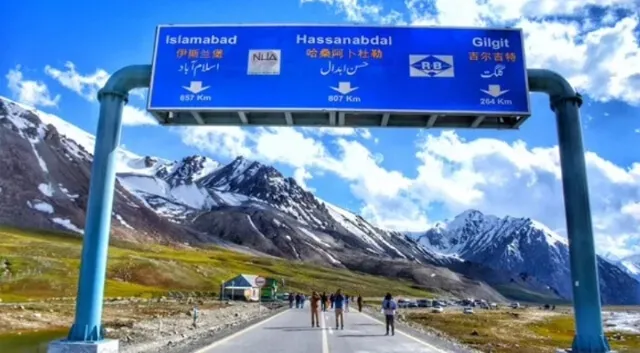Why Have Over 1000 Madrasas Been Closed in PoK?

Synopsis
Key Takeaways
- Over 1000 madrasas closed in PoK for safety.
- Closure due to fears of an Indian attack.
- Increased monitoring of foreign flights from India.
- Pakistan suspends domestic flights to northern regions.
- Escalating tensions following the Pahalgam attack.
Islamabad, May 2 (NationPress) More than 1000 madrasas in Pakistan-occupied Kashmir (PoK) have been closed for a minimum of 10 days, as announced by local authorities on Friday.
Trusted sources have informed IANS that the closures are a precautionary measure due to the increasing anxiety surrounding a potential attack by India, which has previously stated that these institutions serve as shelters for terrorists.
Residents are concerned that while a full-scale war with Pakistan might not be imminent, India could still execute targeted strikes in PoK regions along the Line of Control (LoC), reminiscent of the 2019 incidents when Indian Air Force jets targeted the supposed militant hideaway of Maulana Masood Azhar in Balakot’s Jabba area within Mansehra district of Khyber Pakhtunkhwa (KP) province.
“The government has ordered the shutdown of over 1000 madrasas for 10 days, and students have been given holidays,” an official disclosed under the condition of anonymity.
On Wednesday, Pakistan also suspended all domestic flights to Gilgit and Skardu amid rising tensions following the April 22 Pahalgam attack that resulted in the deaths of 26 innocent civilians.
“The decision to halt flights to the northern regions was made after reviewing national airspace safety protocols. All other flights to northern Pakistan have also been temporarily halted as a precaution,” an official stated.
Stringent monitoring of foreign flights has also commenced, with a particular focus on international airlines crossing from India. The Pakistan Civil Aviation Authority (CAA) has been directed to examine all incoming foreign aircraft closely.
India has long accused Pakistan of supporting anti-India militant groups, asserting that religious seminaries act as breeding grounds for terrorism. New Delhi has also implicated Islamabad in the Pahalgam terror attack, where Indian nationals were targeted based on their religion.
Conversely, Pakistan denies India’s allegations and suspects that New Delhi is attempting to revisit the Indus Waters Treaty (IWT), which was put on hold following the Pahalgam incident, potentially leading to negotiations.
Pakistan has also cautioned India of a “swift, resolute, and decisive response” should it attempt an attack.
“We will not initiate a war. If India commences hostilities against Pakistan, that will be its choice, and how we react will be ours,” stated DG ISPR Lt. General Ahmed Sharif Chaudhry.
Additionally, Pakistan has been conducting extensive military exercises near the Indian borders along the LoC and the Working Boundary, demonstrating its preparedness to counter any aggressive actions from India.









